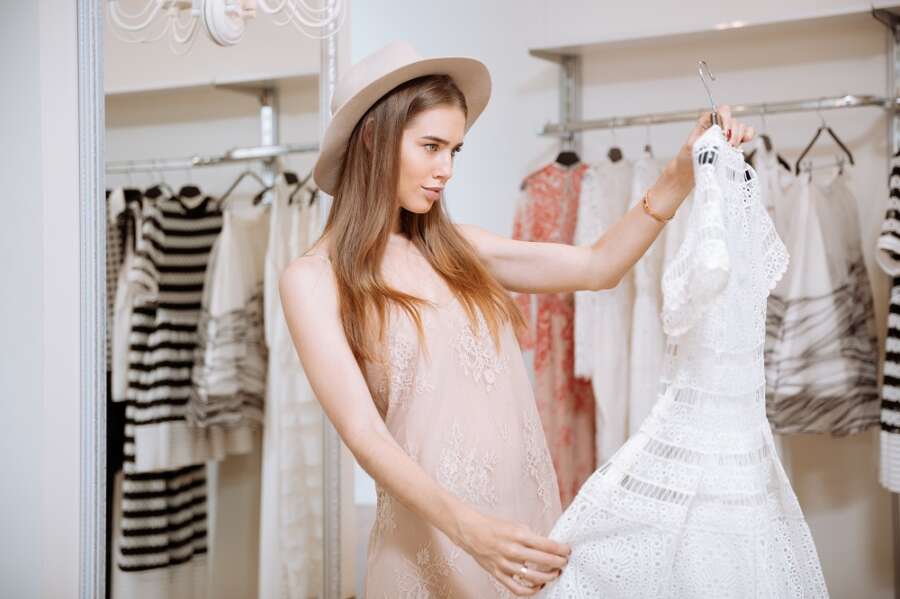The Rise Of Luxury Fashion Resale Websites In A Slow Commerce Era
When Instagram Needs Meet Sustainable Means: The Rise Of Luxury Fashion Resale Websites
Since the 2010s consumer interest in brand’s eco-credentials has been on the rise, with 47% of internet users worldwide ditching products and services from a brand that violated their personal values.[1] This has seen a worldwide response across retailers looking to suddenly increase their sustainability efforts in order to maintain positive brand sentiment and healthy sales. Of these retailers, the fashion industry has notably been one of the most scrutinised by consumers and media due to the various effects it has on both the environment and human beings.
Whilst there has been a rise in more sustainably focused fashion brands utilising innovative means to implement more responsible processes, such as sourcing fabrics from deadstock materials and setting higher price points to discourage cheap labour, this doesn’t address the fact that consumers have developed a cyclical habit of purchasing new clothes more times relentlessly, with many items in people’s wardrobes being unworn, forgotten about, or worse yet, left for landfill. To understand the gravity of this situation, this is around 300,000 tonnes of clothes that are burned or buried in landfill each year.[2]
Therefore, whilst millennials are expecting fashion brands to align with their increasingly eco-aware values, this is juxtaposed by the desire to purchase a new outfit every week to maintain social status – the reality of an Instagram world where likes and comments are a social currency of their own.
Whilst fashion brands recruit Heads of Sustainability and roll out long-term initiatives, there is a growingly popular preloved business model which has seen an influx of e-commerce websites looking to attract sustainability-seeking consumers with ‘slow commerce’.
Introducing luxury fashion resale websites… The premise behind these websites is the notion of purchasing second hand as a more conscious means to an outfit that technically isn’t ‘new’, and giving your unwanted clothes a new lease of life by selling them on to someone who will wear them.
One of the UK’s luxury consignment websites is Closet Porter, founded by Jan Moncrieff, a pre-loved expert with nearly twenty years experience in selling second hand designer fashion. With the company’s headquarters based in Leeds, Closet Porter allows consumers to buy and sell second hand luxury fashion clothing and accessories from some of the world’s most highly sought after brands, such as Chanel, Gucci, Dior and more.
Before becoming an online platform the team behind Closer Porter owned several boutiques in North Yorkshire stocking items from high-end fashion brands that were often hard to come by in the UK.
Whilst the business was growing Jan noticed a gap in the market – footfall would peak every Friday when customers would purchase a new item to be worn once for an occasion over the weekend. This saw seven boutiques across Yorkshire introduce a business model structured around selling pre-loved fashion whereby the store would offer to buy back unwanted clothing from customers in order to sell on again. Over fifteen years later the team took the business model online with Closer Porter.
Luxury fashion lovers can shop confidently on Closer Porter, as the brand adheres to strict practices to ensure all goods are authentic and in the best possible condition. All goods housed on Closet Porter are manually checked by its in-house team of experts. This process involves the Closet Porter team examining the garment stitching, serial numbers, hardware, fonts and fabrics and highlights any flaws that could point to potential counterfeit issues.
Users looking to sell on Closet Porter have the option of being a “Standard Seller”, whereby the seller is responsible for all aspects of the selling process including product photography, copywriting and cleaning. In this instance Closet Porter takes a twenty percent commission fee on the listing. Alternatively, sellers with less time on their hands can opt for Closet Porter’s “VIP Seller” service which requires minimal effort from the seller themselves. As a VIP seller on Closet Porter, users have the ability to send their unwanted luxury fashion items to Closet Porter’s HQ. The Closet Porter in-house team then handles the selling process from start to finish, including the product listing, photography, copywriting and cleaning of the product. In return for this bespoke concierge service, the brand takes a thirty percent commission fee from the item cost once sold.
Speaking of Closet Porter’s ethos and ambitions, Founder Jan Moncrieff says, “The idea for Closet Porter was born to help promote the idea of a curated wardrobe. As a whole, people are beginning to shop more consciously and we want to help spread that message. A future ambition of ours is to introduce a rental service to the site, meaning Closet Porter can become consumers’ trusted site for getting a luxury fashion fix in a more environmentally friendly approach.”
